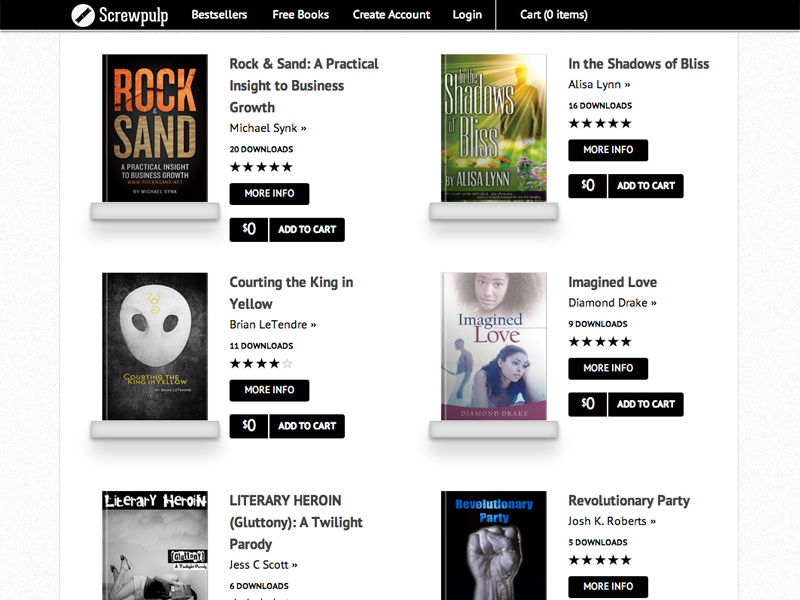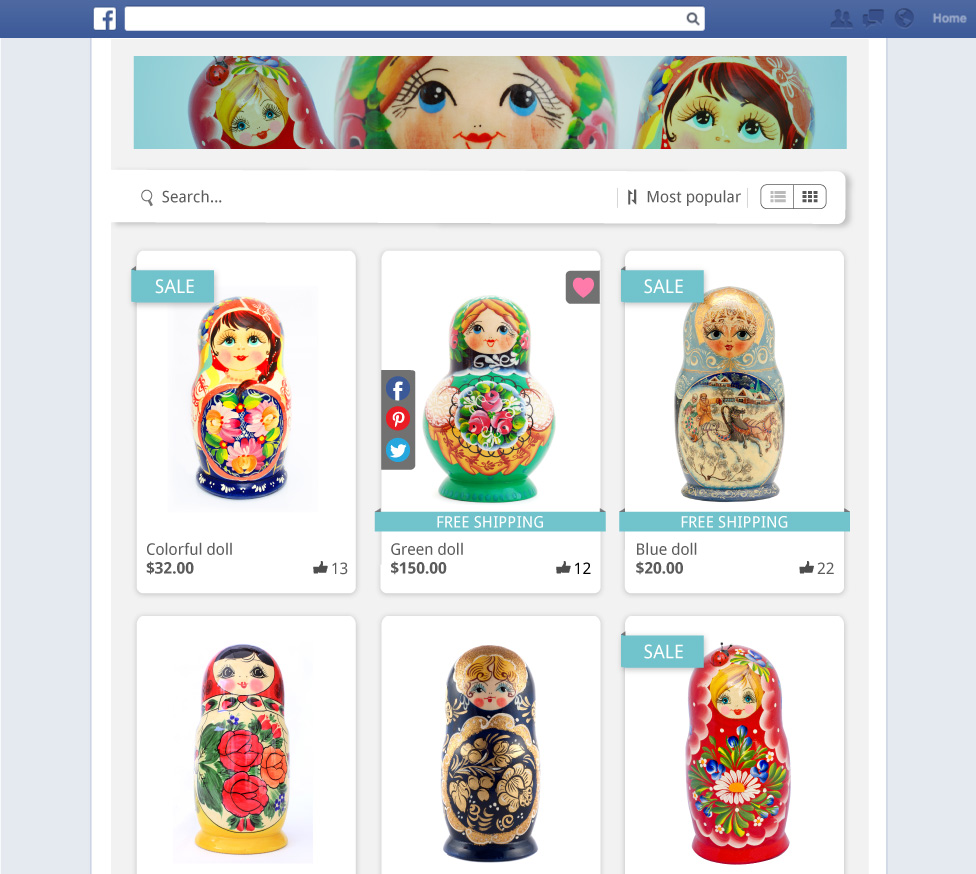 A Q&A with Screwpulp founder and CEO Richard Billings. The Memphis, Tennessee-based startup, which is an ebook publisher with an innovative pricing model built to encourage discovery of new authors, announced the closing of a $330,000 Seed funding round at the end of January. Investors include Start Co. Angels and archer>malmo ventures. It was founded in early 2013.
A Q&A with Screwpulp founder and CEO Richard Billings. The Memphis, Tennessee-based startup, which is an ebook publisher with an innovative pricing model built to encourage discovery of new authors, announced the closing of a $330,000 Seed funding round at the end of January. Investors include Start Co. Angels and archer>malmo ventures. It was founded in early 2013.
SUB: Please describe Screwpulp and your primary innovation.
Billings: Although the way we consume books has changed a lot over the last decade, the publishing landscape has changed very little. Our goal is to make it easier for authors and readers to find each other in meaningful ways. We’ve developed an ebook market with a unique pricing model that rewards early adopters, helps readers filter through the noise and builds an author’s audience quickly.
We allow anyone to publish, but we give away initial copies of any new book in exchange for an honest review and rating. After these initial copies, regardless of the rating, all books are priced at $1. Highly-rated books will continue to sell, and the price will continue to rise incrementally along with that new demand. This method allows for organic filtering of the good from the bad, creates a sense of scarcity that is rarely seen with digital products and allows the author to retain 75 percent of each sale.
SUB: Who are your target markets and users?
Billings: We have two types of users—readers and writers. Our current target on the authors’ side is the indie self-published author, though established authors could benefit from our approach as well—we’re looking at you Mr. Gaiman and Mrs. Rowling. Many of our readers love to be the first on the block to find that breakaway hit, while others are looking for authors, books, and genres that may otherwise be ignored by traditional publishers. Our system is designed to provide content for every reader type—from the early adopter, to the niche reader, to the bibliophile.
 SUB: Who do you consider to be your competition, and what differentiates Screwpulp from the competition?
SUB: Who do you consider to be your competition, and what differentiates Screwpulp from the competition?
Billings: The self-publishing space is somewhat crowded, but almost all offerings are just reworks of the traditional publishing model. We do not see ourselves as competition to traditional publishers. As a matter of fact, we think that we can partner with traditional publishers to perform as a sort of proving ground for new authors and new books. What sets us apart from the rest is our pricing model. It creates engagement and collaboration among authors and readers that doesn’t exist elsewhere. It creates a sense of community and ownership that’s lacking in large book markets.
SUB: You just announced that you’ve raised $330,000 in Seed funding. Why was this a particularly good time to raise outside funding?
Billings: Over the last year we’ve assembled a stellar team, built our product and proven some of the assumptions we’ve made in our model. Through speaking with authors and readers, we’ve developed a roadmap of features and feel now is the time to execute. The rise in e-readers and self-publishing shows that authors and reader want something more. So now is the perfect time in the industry for us to come on the scene. With this funding we’ll have the whole team in one office, which will allow us to become more agile and respond more quickly to our customers’ needs.
SUB: How do you plan to use the funds?
Billings: We’ll be using the majority of our funds to continue building our platform and meet the needs of both of our customers—the readers and the writers. We’re building tools that make it easy for authors to promote their books, and the analytics to track their marketing and sales. We’re building a web-based e-reader that will allow users to read their purchases on nearly any device, without the need to download an app. We’ll also be using the funds to develop our marketing and branding strategies.
SUB: What was the inspiration behind the idea for Screwpulp? Was there an ‘aha’ moment, or was the idea more gradual in developing?
Billings: As an amateur writer, I finally decided to move from short stories and poetry to trying my hand at a novel. After a couple of weeks, I only had about two chapters done. I figured that if I was going to spend the next year or more writing, I had better get an understanding of the publishing landscape. I quickly found that getting a book published through traditional means is a daunting task. I looked at the new surge in self-publishing and saw serious flaws in both pricing and marketing. I thought there must be a better way, and began developing my own approach from both a reader and a writer’s perspective.
 SUB: What were the first steps you took in establishing the company?
SUB: What were the first steps you took in establishing the company?
Billings: The first step I took was to start asking questions. I’d run the idea by anyone willing to listen. For over a year I talked to both readers and writers, adjusting my plan with every new insight. I later found out that I had inadvertently been doing ‘customer discovery.’ In Memphis we are lucky to have a strong entrepreneurial ecosystem. Through our work with Start Co., LaunchTN, and a lot of help from our local mentors, we’ve been able to progress from a 48-hour launch Startup Weekend-style event through the Seed Hatchery accelerator, on to a statewide master accelerator, to an investable company.
SUB: How did you come up with the name? What is the story or meaning behind it?
Billings: Our name is the merging of the original printing press—Gutenberg’s screw press—and the pulp magazines and books that were designed to give affordable reading material to the masses. Screwpulp.
SUB: Do you have plans to seek additional outside funding in the near future?
Billings: We’ve only just closed this round, so we aren’t directly seeking any new funding for a while. That said, we are certainly open to discussing additional funding and partnerships.
SUB: What have the most significant challenges been so far to building the company?
Billings: Customer acquisition is always tough for a new startup. The “if you build it, they will come” approach rarely works. We are working to launch a solid marketing campaign this year to introduce our approach to a larger audience.
SUB: How do you generate revenue or plan to generate revenue?
Billings: Screwpulp derives its revenue from ebook sales. We keep 25 percent of all book sales on our site.
SUB: What are your goals for Screwpulp over the next year or so?
Billings: Our main goal at Screwpulp is simple: To ensure that no good book goes unread. To that end, we are committed to bringing the best possible experience to both authors and readers. We are actively developing partnerships with editors, cover designers and traditional publishers in order to provide our authors with the clearest path to success.








